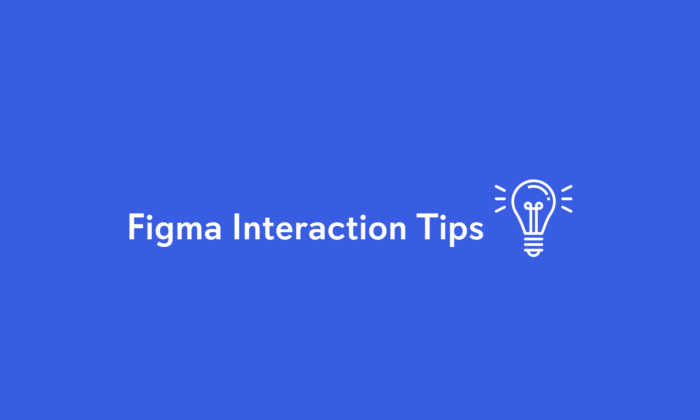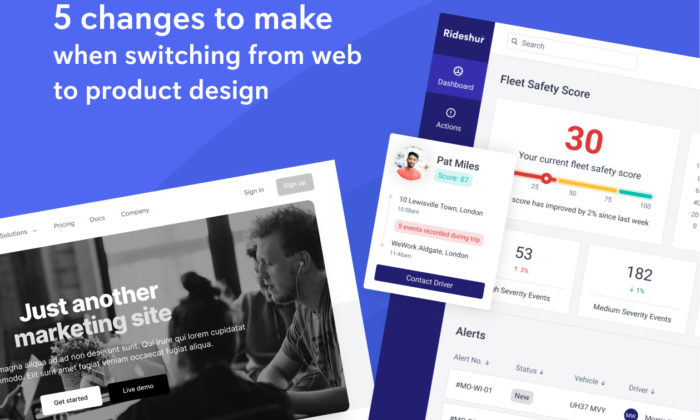At the age of 18, I walked into my first office job with excitement, enthusiasm and high hopes for my new, glamorous life working in fashion. I assumed that this would be my career forever and I would do my best to rise through the ranks as quickly and efficiently as possible. It didn't take me long to realise that this was not the shiny, exciting career I had hoped for and that I didn't want a future in the fashion industry.
After a collection of unfortunate experiences in my work and home life, I quit my job just a year and a half after starting with no plans for my future career or what I would do next. After a year of lockdown, panicking and doing a whole lot of nothing, I decided I would do something I had been thinking about for a long time - I would learn to code.
Here I am now, I’ve been a full-stack developer at Inktrap for 6 months following a 3 month coding bootcamp. Here are the lessons I learnt from changing careers in under 12 months.
Lesson 1: Ask for help
Asking for help is hard. If you're anything like me, you may have been conditioned to believe that asking for help is synonymous with giving up or even a sign of failure. For me, asking for help in my work and my personal life is the fastest shortcut to growth.
Navigating asking for help when learning a new skill - in my case, coding - was difficult and sometimes felt embarrassing that I didn't know things that I thought should be obvious or that everyone else knew about. Overcoming these feelings was hard but it was also what drove me forward in my abilities and my confidence, and what got me through such an intense training program. Now that I'm working as a developer, I use the 20 or 30 minute rule (a slightly extended version of the 15 minute rule). The rule works as a guideline as to when not asking for help will waste my time and the company’s time, and encourages me to ask a colleague for some guidance.
Lesson 2: Honesty
Honesty is one of the most important of all of the lessons that I learnt, because it spans so many areas of a career change; you need to be honest with yourself, with employers (or potential employers) and you have to be honest about your expectations of what it will take to change careers.
Being honest with myself was the first step for me, it started with acknowledging how unhappy I was in my career and facing the fact that I would never be happy if I carried on going down that route. After quitting my job in fashion, I started looking into coding; I then had to be honest with myself that although it is possible to be completely self taught as a developer, I lacked the confidence in myself that I would know when I had reached a level of proficiency to put myself forward for my first developer job. This led to the decision to do a 12 week coding bootcamp instead which gave me confidence and allowed me to compare myself to others (positively, rather than competitively) to get a sense of where I was in my ability.
Everyone is familiar with that dreaded job interview question: 'What would you say is your biggest weakness?', and answering with a good old fashioned 'I'm too much of a perfectionist' is very tempting. Honesty with your employer or potential employer can sometimes feel like a bit of a maze, striking a balance between making yourself look good and being 'too honest' can be tough to navigate. Whilst standing out from other candidates and demonstrating that you are capable and competent are important, I also found that by questioning the more traditional route of only focusing on my best qualities and taking a more rounded approach of also admitting my weaknesses did help me to get my first developer job. As part of my interview, I was tasked with completing a technical test, I was able to do most of it but there were some parts that were simply too advanced and exceeded the limits of my knowledge. As tempting as it was to make an excuse and say I ran out of time, I instead wrote down all of my failed attempts, how I tried to solve them, and any ideas I had that might have solved the issue, but that I wasn't acquainted well enough with to put into practice. I submitted all of that along with the tech test which gave the dev team a chance to see my problem solving skills and how I approach problems and ultimately led to me getting hired.
Lesson 3: Don't settle for less
Upon graduating from my coding bootcamp, we were cautioned that the job hunt could be a long and painful process. I noticed a sort of 'take what you can get' narrative among some of the articles I was reading about finding a job, and even among some of the people coming out of the bootcamp. This is an understandable attitude to adopt when going into a new career, especially after a pandemic where many people lost jobs and companies went out of business. However, if you're fortunate enough to be in the position to wait a little longer to find the right company, the benefits are significant.
There were a few non-negotiables for me, many of which stemmed from my previous job dissatisfaction and in particular, seeing colleagues and friends being signed off with stress and stress-related health issues caused by their work environment. The first of these was to find a company where I would be respected on a personal level, by both my peers and my seniors, and have the opportunity to earn respect on a professional level. Secondly, somewhere where I would learn as often and as efficiently as possible. Finally, I wanted to work somewhere that held good work-life balance values, where overtime would be a rare occurrence, and lunch breaks, sick leave and taking holiday were accepted and not shamed or frowned upon.
I applied for 3 jobs in total and put all of the time that I might have spent on applying for 20 or 30 jobs that I didn't really like, into doing just 3 applications to companies that I genuinely wanted to work for. The payoff from this has been huge for me and I'm now working in a job where I feel respected and valued, I never work overtime and I'm learning new things every day.
Lesson 4: Commit
No matter what age you are, changing career is scary. Before learning to code, there were a lot of doubts and hesitations in my mind - what if I'm not clever enough to code? What if I end up hating it? What if people don't take me seriously? These are reasonable worries, and committing to a change in career can be a huge financial risk, these are all things to consider before making the decision. However, once the decision is made, that is when it's time to either commit to it fully, or not do it at all.
I was fortunate enough that my decision to commit was made easier because I felt that I didn't have anything life-changing to lose by committing; I hadn't spent years building a career, I didn't have a mortgage or children to think about and I hadn't considered any alternatives. That being said, it was still going to be a large investment of my time and energy for something that I wasn't 100% sure would work out. Trying to change this mindset was probably the biggest challenge out of everything else for me because I was so scared that I would fail and it would all be for nothing. The only way that I found to overcome this negative outlook was to fully commit to changing careers; I completely let go of the idea that I could go back to my previous job, I called the coding bootcamp I wanted to join and found out the requirements to get in, and I immediately got to work on the course that has to be completed to be able to do the admissions interview. Once I got onto the bootcamp, I had already proven to myself that I was good enough to pass a coding test and from there, as my motivation and confidence steadily increased, so did my devotion to making the switch to being a developer.
Looking to work some where that offers autonomy, flexibility and a great team of people? Check out our jobs page.
How can Inktrap be of help?
At Inktrap, we help teams build great digital products. For over 8 years we’ve been helping technology businesses focus on their users, from early-stage to funding and beyond. We know user testing inside and out so don't hesitate to talk with us for any help you want planning and executing your user test.
More like this

Figma Interaction Tips
Get the most out of Figma with helpful tips on creating captivating interactions that will keep users engaged! Discover how to use design elements and animation techniques, so you can create amazing projects.

5 changes to make when switching from web to product design
Making the switch from web design to product design? Here are five key changes you'll need to make.
